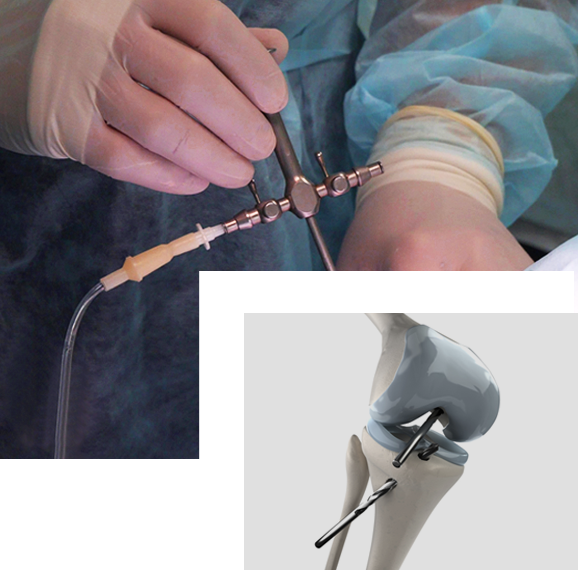
OrthoMiami is an orthopedic center of excellence for individuals seeking treatment of both Sports-related and General Orthopedic injuries. Our specialized orthopedic clinic caters to a diverse clientele, including athletes and active individuals from the South Florida region and beyond.
-

Cesar E. Ceballos, MD, FAAOS
Orthopedic Surgeon &
Sports Medicine SpecialistFounder of OrthoMiami -
 Orthopedic Surgeon &
Orthopedic Surgeon &
Sports Medicine SpecialistFounder of OrthoMiami -

-

-

-

-

-

Cutting Edge Treatments at OrthoMiami
-
 Minimally Invasive SurgeryIncisionless Surgery Needle Arthroscopy
Minimally Invasive SurgeryIncisionless Surgery Needle ArthroscopyNeedle arthroscopy, also known as “nano-arthroscopy” or “micro-arthroscopy”, is a revolutionary minimally invasive surgical technique used to diagnose and treat joint problems. This type of arthroscopy is performed using a small needle-like instrument, which is inserted into the joint through a tiny incision.
-
Nonsurgical Treatment PlanRegenerative Medicine: Prp & Stem Cell Therapy
Blood is primarily made up of a liquid called plasma, but it also contains small solid components such as red cells, white cells, and platelets. Platelets are well-known for their role in blood clotting, but they also contain numerous proteins called growth factors that play a crucial role in healing injuries.

-
 Matrix-InducedAutologous Chondrocyte Implantation (MACI)
Matrix-InducedAutologous Chondrocyte Implantation (MACI)An innovative, FDA-approved cartilage restoration procedure that uses your own cells to repair cartilage defects in your knee. It can alleviate knee pain, help you regain function and may even delay or prevent arthritis.
Every Step
Wellness Experts
-
 Orthopedic Surgery & Sports Medicine: A Winning Combination for Athletes
Orthopedic Surgery & Sports Medicine: A Winning Combination for AthletesIn the world of sports, where the pursuit of victory often goes hand in hand with the risk of injury...
-
 Navigating Elbow Fracture Care: A Comprehensive Guide to Diagnosis & Treatment
Navigating Elbow Fracture Care: A Comprehensive Guide to Diagnosis & TreatmentFew injuries can disrupt daily life like an elbow fracture. Whether caused by a sudden impact or a fall...
- 7800 SW 87th Avenue
Suite A-110
Miami, Florida 33173 - 3905 NW 107th Avenue
Suite 403
Doral, Florida 33178 - 925 NE 30 Terrace
Suite 314
Homestead, Florida 33033 - Monday: 8:30 AM – 5:00 PM
Tuesday: 8:30 AM – 5:00 PM
Wednesday: 8:30 AM – 5:00 PM
Thursday: 8:30 AM - 5:00 PM
Friday: 8:30 AM – 3:30 PM
